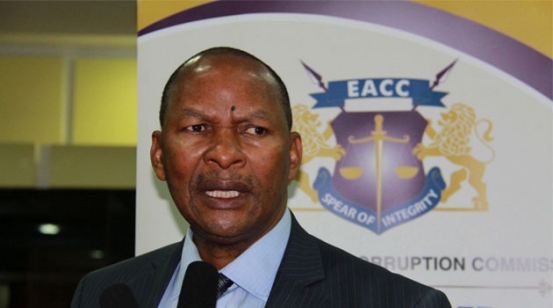×
The Standard e-Paper
Fearless, Trusted News

I ran the race, kept the faith and have been vindicated. This would be a declaration from Mr Mumo Matemu who, until slightly under two months ago, was the Ethics and Anti-Corruption Commission (EACC) chairman.
Matemu, jobless because he was forced out of his well-paying job, is excited that one of the obstacles that stood in his way since his controversial appointment three years ago has finally been removed, albeit long after the horse had bolted out.